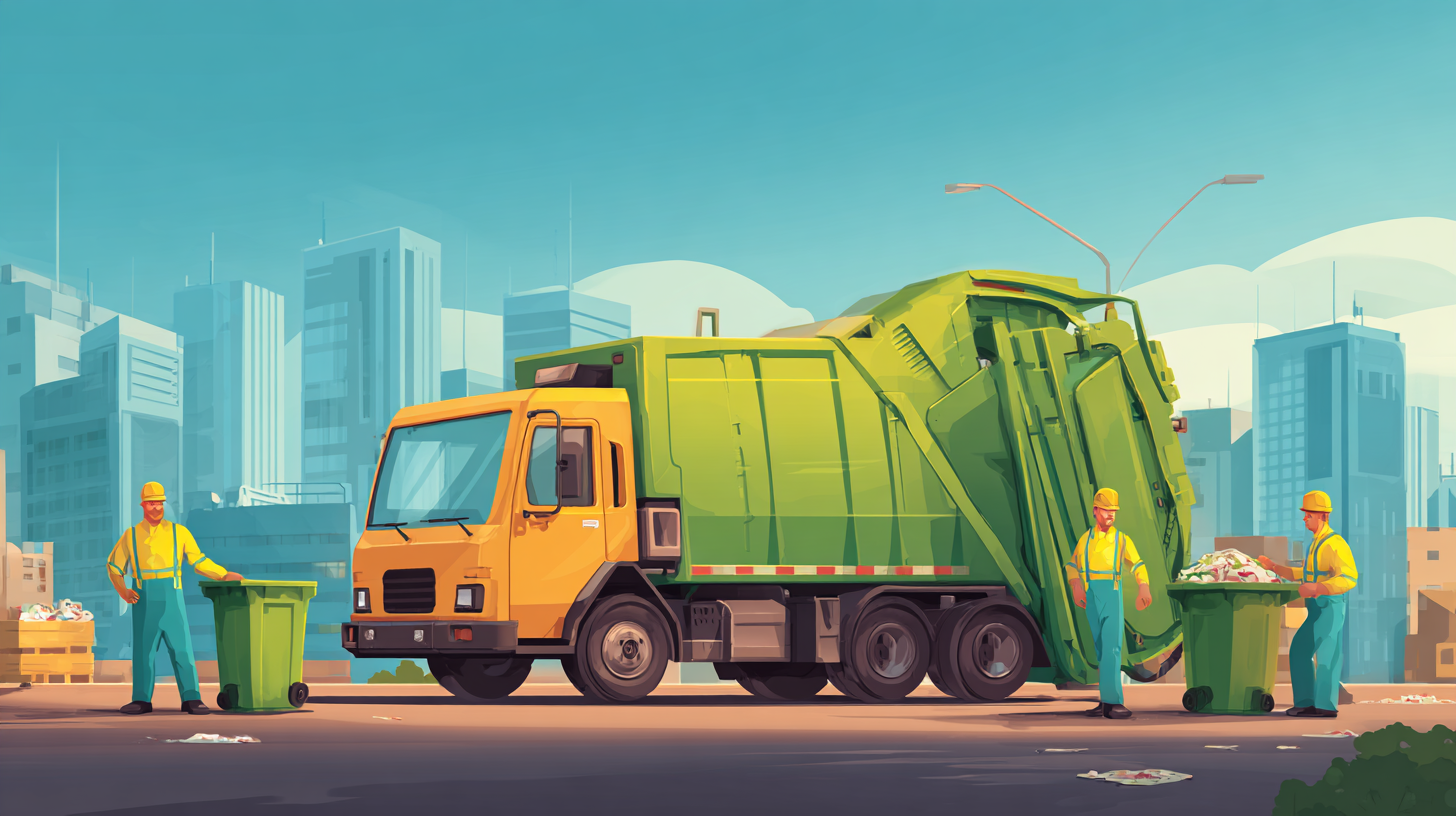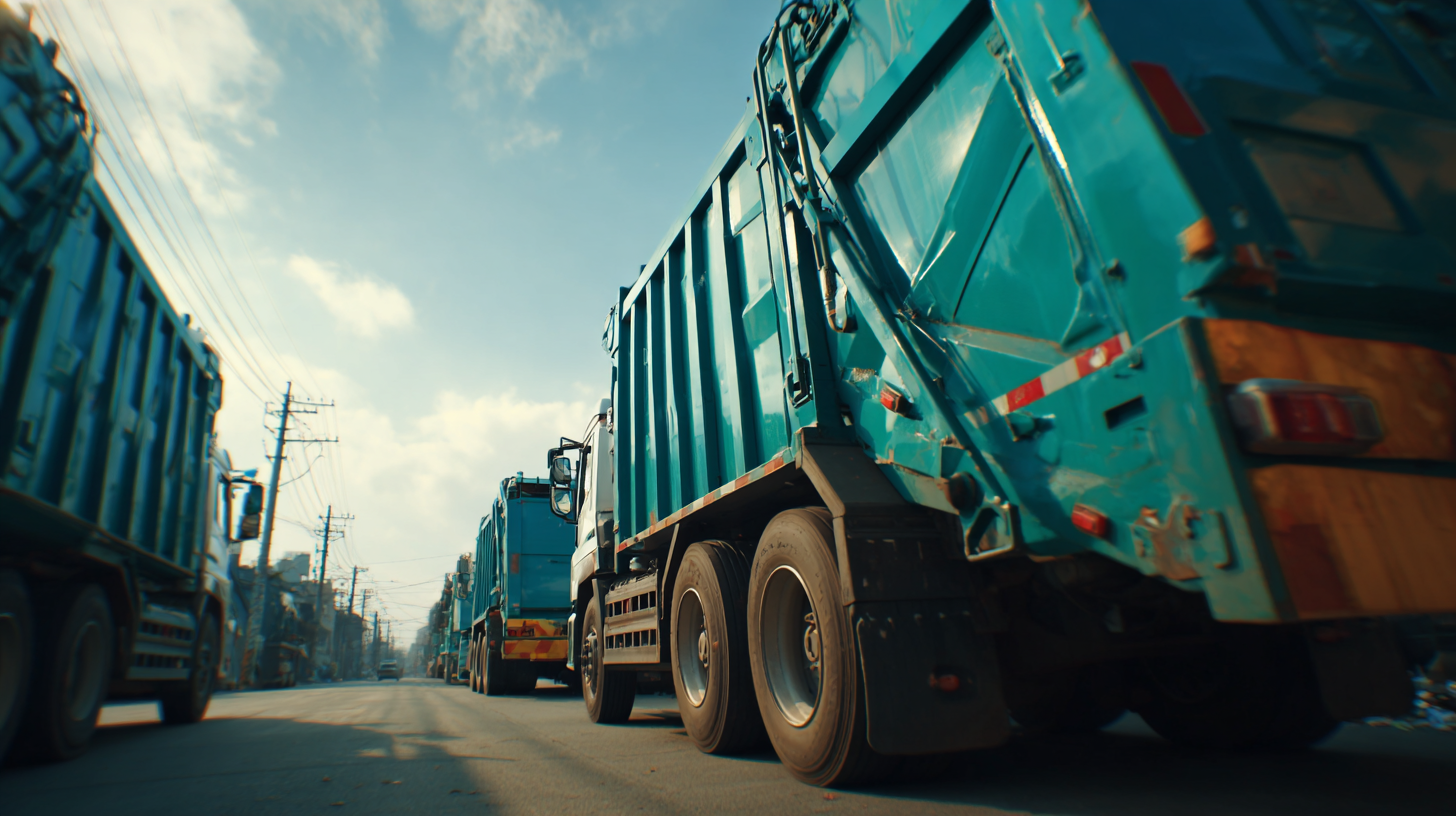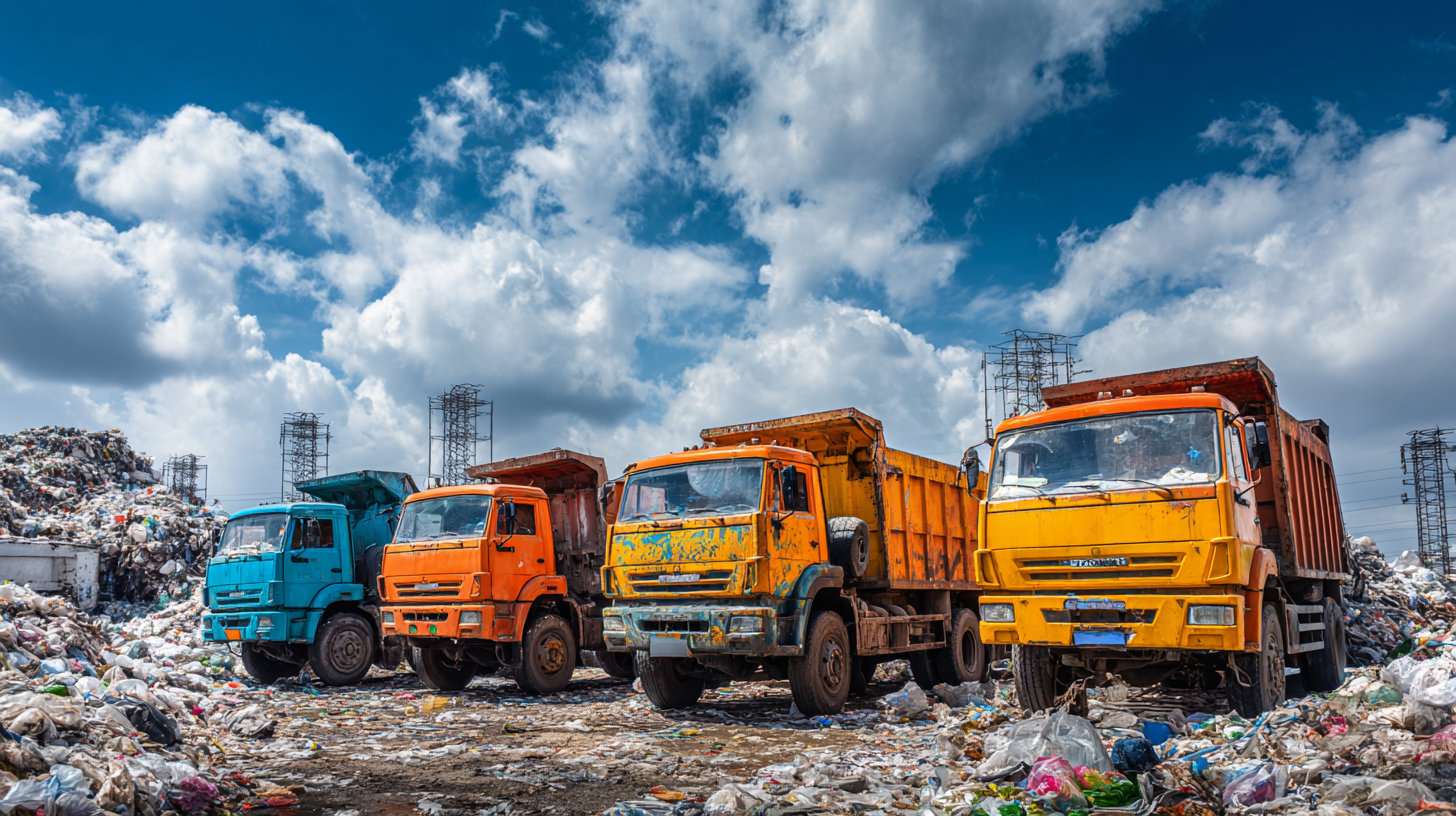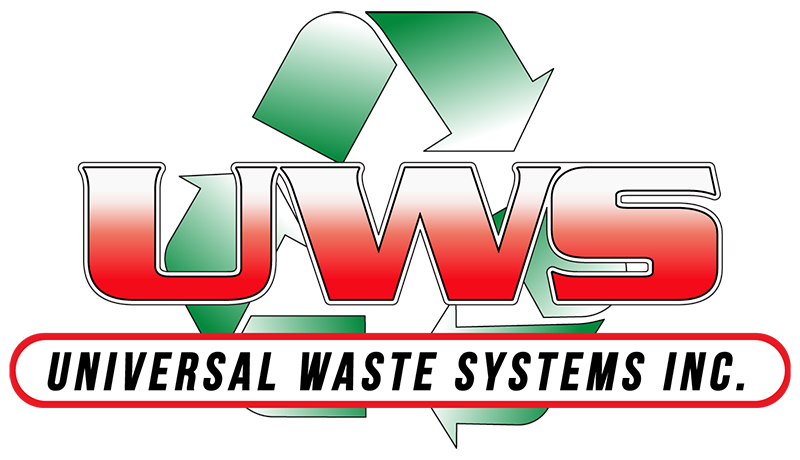Blog
Leading the World in Waste Management Solutions: The Best Waste Pickup from Top Exporters
In today's world, effective waste management is a critical issue that every community faces, making efficient waste pickup solutions more important than ever. As urbanization and industrialization continue to rise, the demand for advanced waste management practices has surged, prompting nations to seek innovative approaches from leading exporters of waste management solutions. This blog will delve into the best waste pickup methods provided by top companies across the globe, highlighting their technologies, strategies, and the significant impact they have on maintaining cleaner environments.

By examining these industry leaders, we aim to inspire communities to adopt smarter waste disposal practices, ultimately contributing to sustainable living. Join us as we explore the cutting-edge waste pickup solutions that are setting the standard in waste management worldwide.
Innovative Waste Management Practices from Global Leaders
In the realm of waste management, global leaders are pioneering innovative practices that set new standards for efficiency and sustainability. From advanced sorting technologies to environmentally friendly disposal methods, these innovators are transforming how waste is managed. For instance, countries like Sweden have adopted waste-to-energy systems that not only reduce landfill usage but also generate electricity, significantly contributing to the country’s renewable energy goals. Such practices exemplify a shift towards circular economy principles, where waste is viewed as a resource rather than a burden.
Moreover, top exporters are leveraging technology to enhance waste collection services. Smart bins equipped with sensors can alert waste management companies when they are full, optimizing collection routes and reducing fuel consumption. Additionally, data analytics plays a crucial role in understanding waste patterns, which allows for more effective recycling initiatives and public awareness campaigns. By leading with these innovative practices, these global leaders are not only improving their waste management systems but also providing a blueprint for others to follow in the pursuit of a cleaner, more sustainable planet.
Leading the World in Waste Management Solutions: The Best Waste Pickup from Top Exporters - Innovative Waste Management Practices from Global Leaders
| Country | Annual Waste Collected (Tons) | Recycling Rate (%) | Waste to Energy Conversion (%) | Investment in Waste Management (Million $) |
|---|---|---|---|---|
| Germany | 20000000 | 66 | 42 | 500 |
| Sweden | 15000000 | 50 | 46 | 300 |
| Japan | 40000000 | 37 | 25 | 400 |
| Netherlands | 18000000 | 63 | 34 | 250 |
| Canada | 31000000 | 30 | 20 | 200 |
Key Players in the Waste Pickup Industry: An Overview
The waste pickup industry is undergoing significant transformation as leading companies innovate to enhance efficiency and sustainability. According to a recent report from a global waste management authority, the average waste collected per capita has decreased from 1.2 kg to 0.9 kg in major urban areas over the past five years. This reduction showcases the effective strategies employed by key players in waste management, including increased recycling initiatives and public awareness campaigns.
Furthermore, industry leaders are investing heavily in technology to optimize waste collection processes. The implementation of smart bins equipped with IoT sensors allows for real-time monitoring of waste levels, which has been shown to improve collection efficiency by up to 30%. Additionally, the global waste management market is projected to reach $500 billion by 2025, reflecting a growing recognition of the importance of sustainable waste solutions in urban planning and environmental preservation.
These developments indicate a robust future for the waste pickup sector, driven by the collaboration of top exporters and local authorities.
Sustainable Alternatives in Waste Collection and Processing
The growing emphasis on sustainability has led to innovative approaches in waste collection and processing, showcasing the potential of environmentally friendly alternatives. According to a report by the World Bank, global waste generation is expected to reach 3.4 billion tons by 2050, highlighting the urgent need for effective waste management solutions. Among these, sustainable waste collection techniques such as source separation and composting are gaining traction. They not only minimize landfill disposal but also create opportunities for recycling and resource recovery, pivotal in reducing the carbon footprint of waste operations.

Additionally, advancements in technology play a crucial role in optimizing waste management practices. The Global Recycling Foundation reported that increased recycling can prevent 1.5 billion tons of CO2 emissions annually by diverting materials from landfills. Innovative waste processing methods, such as anaerobic digestion, transform organic waste into biogas, providing renewable energy while significantly cutting down greenhouse gas emissions. These sustainable alternatives are not just beneficial for the environment but also offer economic advantages by creating jobs in the green economy and reducing costs associated with waste disposal. As the world pivots towards more sustainable practices, the waste management sector is positioned to lead this critical change.
Technological Advancements Shaping Waste Management Solutions
The landscape of waste management is undergoing a significant transformation, driven largely by technological advancements. Innovations such as smart waste bins equipped with sensors can detect when they are full and alert waste collection services in real-time. This not only optimizes collection routes but also reduces operational costs and minimizes the carbon footprint associated with waste pickup. Furthermore, integrating IoT technology allows for better monitoring and management of waste disposal processes, enabling cities to respond swiftly to changes in waste generation patterns.
Additionally, advancements in recycling technologies are making it easier to process materials that were once deemed non-recyclable. For instance, AI-powered sorting systems can significantly improve the efficiency and accuracy of separating recyclables from general waste. These technologies not only enhance the recycling rates but also encourage sustainable practices among businesses and consumers. As more top exporters invest in these cutting-edge solutions, they pave the way for more effective waste management strategies worldwide, ensuring a cleaner and more sustainable future.
Comparative Analysis of Exporters: Who Leads in Waste Solutions?
In the realm of waste management solutions, the competition among exporters is fierce, with several countries vying for the top spot. A comparative analysis reveals that nations like Germany, Sweden, and Japan lead in innovative waste pickup strategies. These exporters have adopted advanced technologies and sustainable practices, significantly reducing landfill dependency and enhancing recycling rates. For instance, Germany's integrated waste management system not only maximizes resource recovery but also minimizes environmental footprints.
Furthermore, the effectiveness of these waste management systems is not solely determined by technology; regulatory frameworks play a crucial role as well. Countries with stringent waste disposal laws and robust public awareness campaigns tend to have a more effective approach to waste pickup. Sweden's commitment to a circular economy ensures that waste is viewed as a resource, driving the development of efficient waste collection systems. This comparative positioning provides insights into best practices that can be adopted globally, fostering a collaborative effort towards more sustainable waste management solutions.

Request a Quote
Fill out the form below and one of our specialists will contact you to discuss your questions and needs.
